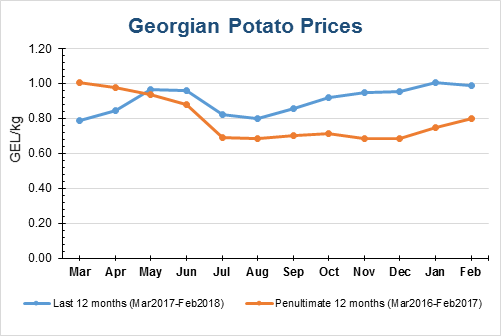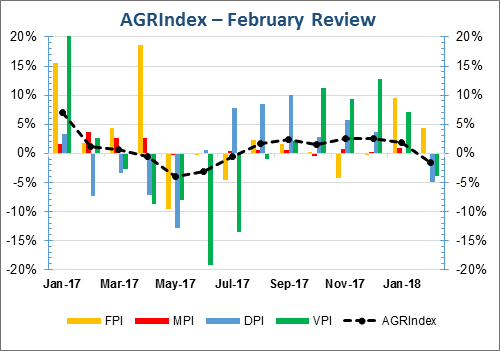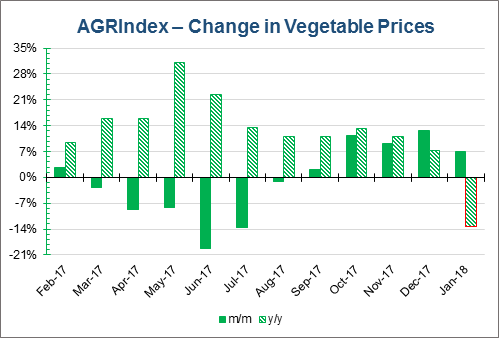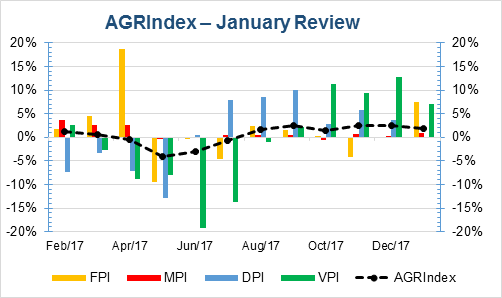- Details
Georgia recently introduced a three-month period temporary ban on potato imports from Turkey, with the goal of avoiding the dangers of spreading potato cancer in the country during the seeding period. So, how might this affect potato prices on the Georgian market?
Although Georgia produces close to a self-sufficient amount of potatoes, the country still trades actively, and the main importer of potato in Georgia in recent years has been Turkey, which accounted for more than 80% of total potato imports in 2017 (in value).
Last November, according to the AGRIndex, potato prices were up by as much as 39% in y/y terms, while the corresponding figure declined to 23% in February 2018. It is also interesting that, according to the AGRIndex, after a six-month period of positive m/m changes in prices, domestically-produced potatoes became cheaper (-2%) in February 2018. This decline in prices might stimulate Georgian consumers to buy Georgian potatoes, especially at the beginning of spring season when the price competition with an imported substitute is tight.
- Details
In February 2018, the AGRIndex decreased by 1.5% in month-to-month terms due to the drop in DAIRY (-5.0%), and VEGETABLE (-3.9%) prices – warm winter paid off! On the other hand, FRUIT (+4.3%) prices increased for the second consecutive month, while MEAT (-0.2%) prices declined marginally in February.
Interestingly, the m/m change in the AGRIndex became negative for first time since the last July, and the y/y change dropped to a 12-month low — the price of the AGRIndex basket was just +3.1% bigger than it was in February 2017.
- Details
In month-to-month terms, domestically produced VEGETABLE prices have been increasing since September 2017, and the positive change for January 2018 equaled 7.1%. Nevertheless, for the first time since December 2016, the year-to-year change became negative (-13.4%).
A large share of the decline in year-to-year prices were derived from an 8% drop in cucumber prices, a 17% drop in tomato prices, and an almost 50% drop in eggplant prices, compared to January 2017. The international trade data explains the changes in tomato and eggplant prices fairly well — according to GeoStat, the trade balance (export - import) for tomato and eggplant worsened by 168,900 USD and 52,600 USD, respectively. However, the trade balance is counterintuitive for cucumber, as it improved by 35,900 USD from January 2017 to January 2018.
- Details
Georgia started 2018 with increased prices on domestically produced agricultural produce, though the m/m change in prices was just +1.8%. The biggest share of this increase was derived from the gain in VEGETABLE (+7.1%) prices, but in month-to-month terms, FRUIT (+7.4%) prices increased the most. On the other hand, DAIRY (-0.1%), and MEAT (+0.8%) prices were practically unchanged.
Interestingly, the year-to-year gain in the price of the AGRIndex basket was just +5.9%, which is the smallest figure since the February 2017.














